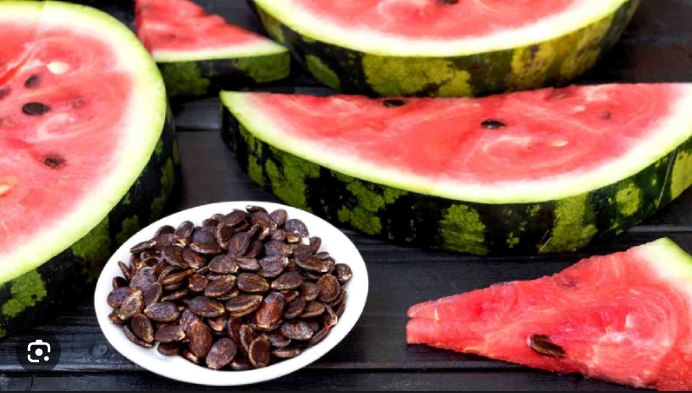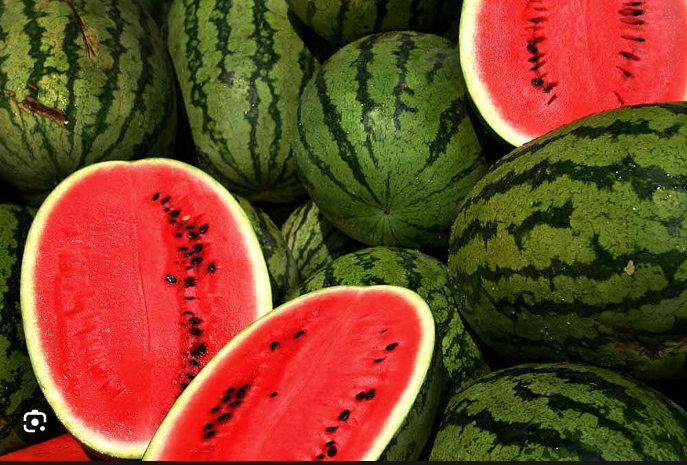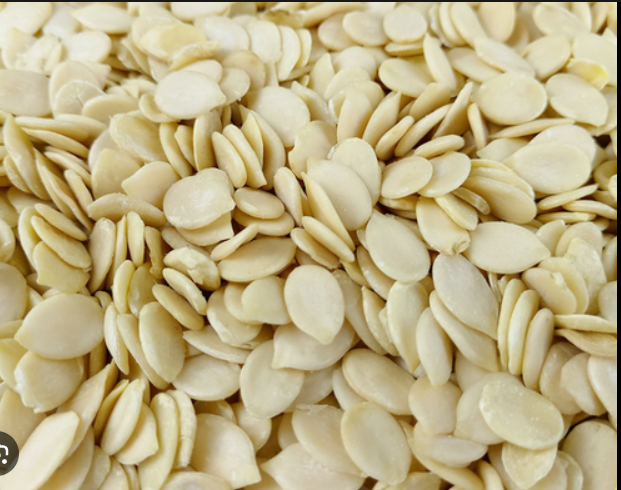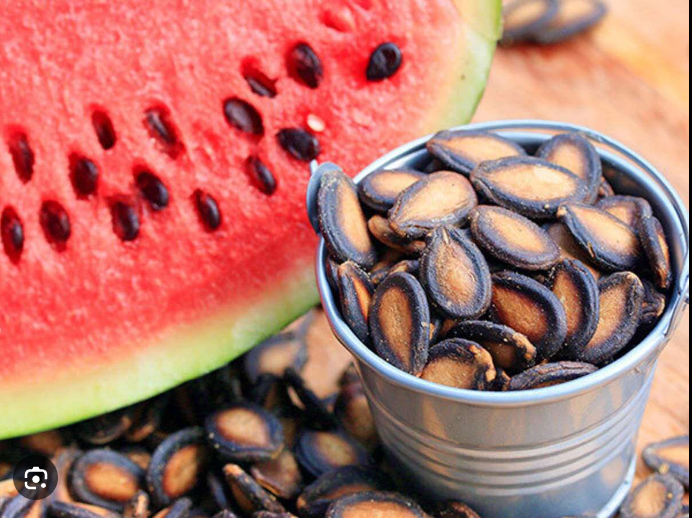These heart-healthy watermelon seeds are abundant in omega-3 and omega-6 fatty acids as well as fiber and magnesium, two vital minerals that help control blood sugar levels.
Despite the fact that watermelon juice must be consumed in moderation by diabetics due to its natural sugar content, this luscious fruit’s seeds include a diabetes-friendly ingredient. Frequently disregarded, watermelon seeds are a rich source of several nutrients that are good for the heart and help control diabetes, according to specialists.
According to Dr. Sabyasachi Mukhopadhyay, consultant cardiologist at Manipal Hospital in Goa, “Typically, the seeds of most fruits are densely packed with nutrients as they have to sprout and eventually grow into plants and trees.”
Experts claim that watermelon seeds are rich sources of magnesium, iron, fiber, and protein. In addition to being loaded with anti-inflammatory antioxidants, they also include vitamins B, C, and E.
Healthy omega-3 and omega-6 fatty acids are present in the seeds. According to Dr. Mukhopadhyay, these nutrients are advantageous for persons with diseases including heart disease, hypertension, diabetes, autoimmune disease, and even renal difficulties. They are also low in calories, making them suitable for snacking by people trying to reduce weight.
Benefits of watermelon seeds for the heart

Dr. Mukhopadhyay notes that watermelon seeds can help lower high blood pressure as well as high blood sugar and cholesterol levels when ingested as part of a healthy diet. They have monounsaturated fatty acids and polyunsaturated fatty acids, which lower blood levels of harmful cholesterol and triglycerides. Additionally, the magnesium included in these seeds aids in controlling blood pressure.
Dietician and owner of the online clinic 360 Degree Nutricare, Deepalekha Banerjee, claims that the antioxidants in these seeds function as vasodilators, or blood vessel dilatants, which lower blood pressure. Additionally, the iron in watermelon seeds increases the blood’s ability to carry oxygen, while zinc helps control the passage of calcium in the heart.
The senior endocrinologist at Kamineni Hospitals in Hyderabad, Dr. Sandeep Reddy, says that persons with type 2 diabetes are more likely to have heart problems. Consuming watermelon seeds may help lower the risk of cardiovascular problems by reducing cholesterol oxidation and spikes in cholesterol levels.
Watermelon seeds’ function in the treatment of diabetes

Watermelon seeds are a healthy snack choice for diabetics since they can help regulate blood sugar levels. They aid in raising insulin sensitivity, or the capacity of your cells to respond to insulin. According to Banerjee, magnesium also aids in controlling the metabolism of carbohydrates, which controls blood sugar levels. “Magnesium is an essential micronutrient for insulin release and carbohydrate metabolism,” claims Dr. Reddy.
According to experts, watermelon and its seeds can both be consumed in moderation by those with diabetes. According to Dr. Reddy, watermelon has a high water content and a high glucose content, but a lower glycemic load (a measure of the expected rise in blood glucose levels after intake). He does, however, provide a warning that sugar-added watermelon juice should be avoided.
Incorporating watermelon seeds into your diet

Banerjee explains that it is safe to consume both white and black watermelon seeds. In addition, Dr Reddy says these seeds are rich in micronutrients that are not usually present in our regular foods like rice, chapati or vegetables. Hence, it can be a good addition to your diet.
Watermelon seeds can be consumed raw or roasted. They can be extracted from the fruit and dried. Once dry, these seeds can be added to salads and sandwiches or eaten as a snack on their own.
Also read-Ayurvedic Knowledge On Pathya: Food As Medicine
images source-google




































